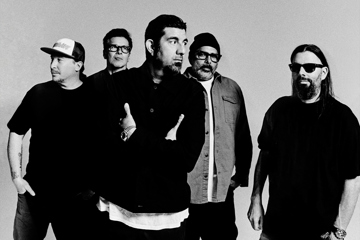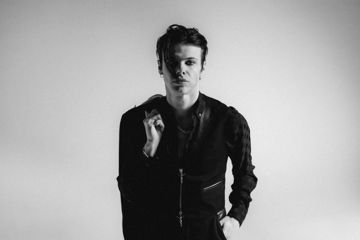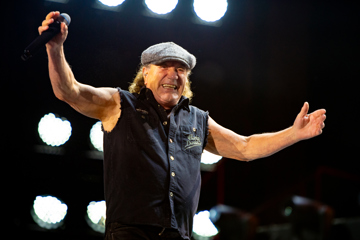EXCLUSIVE: Demands For Gov To Expand Grand Final Scalping Crackdown
Michael Gudinski thinks music scalpers should face the same punishments
Veteran promoter Michael Gudinski is leading the call for legislation to put a stop to ticket scalping at music events amid a police crackdown on scalpers at this weekend's AFL Grand Final.
Designated as a special event, police will be issuing on-the-spot fines of $722 for the first time this weekend with fines of up to $80,000 for individuals and $433,000 for organisations applicable. With ticket scalping angering ticket buyers in a number of instances recently a new push for enforceable anti-scalping legislation is emerging from the music sector.
Gudinski's Frontier Touring has recently dealt with issues arising from on-sold tickets during tours for Bruce Springsteen and Justin Bieber, including one instance when a New Zealand family flew to Melbourne for a Bieber concert to discover their tickets didn't exist.
“I think that the government needs to step in,” Gudinski told theMusic.com.au. “Events have become such a big thing in people's lives… concert tickets are one of the most sought-after commodities.”
Don't miss a beat with our FREE daily newsletter
He added, “I think [the laws are] fantastic for the AFL, that's a one-off event and they were fighting for it for years, but it needs to go further.”
Asserting that his promoter peers share his sentiment, he suggested that the issue needed to go above the state level.
“It's really becoming a federal issue,” he said.
In Queensland scalping is illegal at major venues and there is a 10 percent cost cap for on-sellers, however the laws have proved hard to enforce. Loopholes such as inflated postage costs have meant that scalped tickets still sell for exorbitant prices.
New South Wales Premier Barry O'Farrell is also developing aggressive anti-scalping laws which are expected to be announced before the end of the year, despite resistance from sections of the industry.
The entry of massive ticket on-selling website viagogo into the Australian market has inflamed the topic, with their CEO Eric Baker telling theMusic that they believed, “Once a fan buys a ticket, we believe that it's theirs to do what they want with it,” he said, adding, “…If I buy a motor car, I have the right to sell it.”
Under the viagogo model the sellers don't get paid for the ticket until the event has taken place as part of their security measures against fraudulent tickets.
Gudinski believes that despite their measures, the sites are confusing the marketplace. He said they'd had issues with patrons buying tickets from third parties and then expecting to pick them up at the box office.
“People are naive… all they [the sites] are doing is encouraging scalpers themselves by providing a site that looks official,” he said.
“The main concern for the artist and for me is the price that gets passed on to the fan… The most frustrating thing is when people have bought tickets from viagogo or other on sellers and they don't have tickets [when they arrive].”







